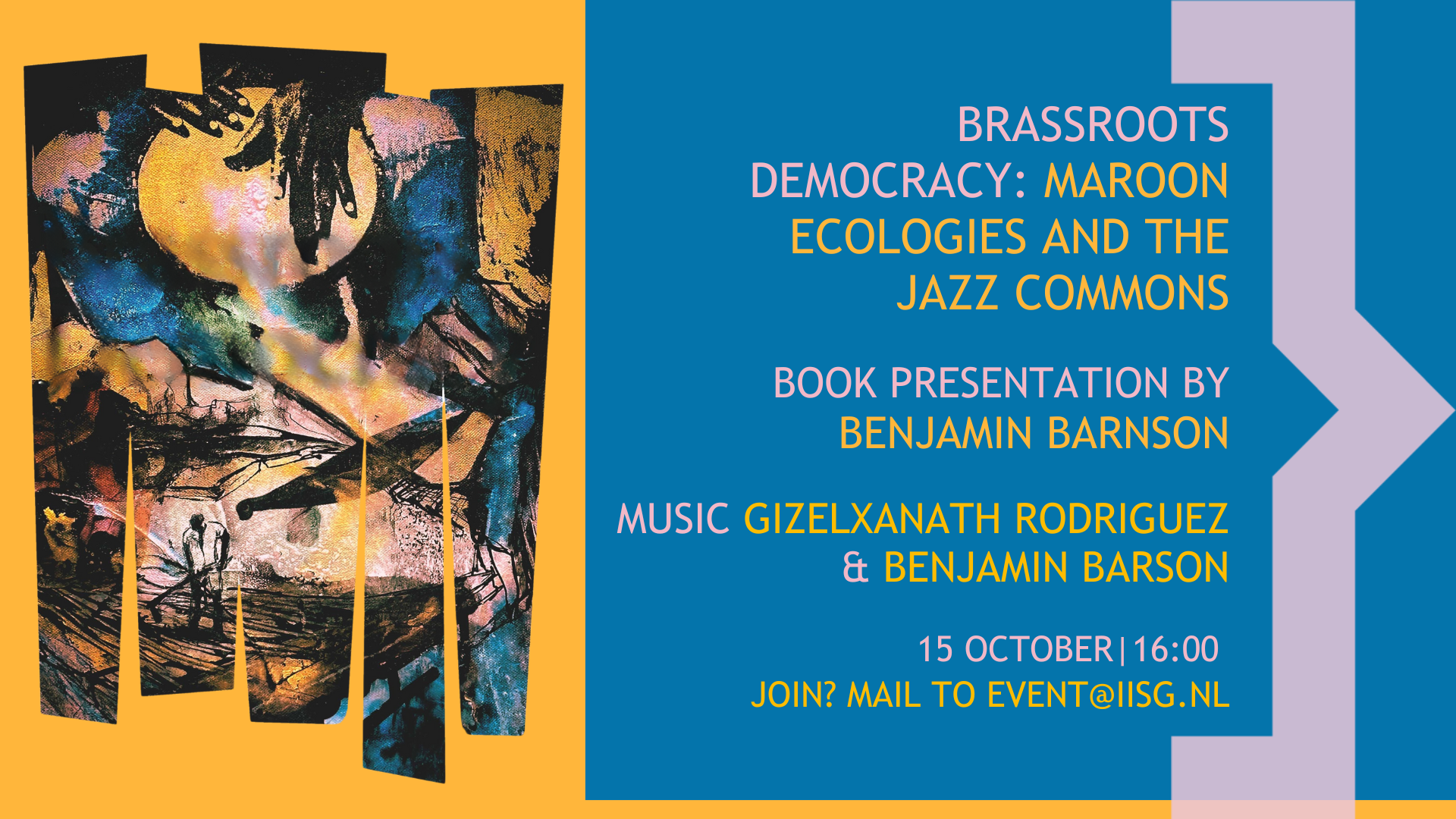Benjamin Barson - Brassroots Democracy: Maroon Ecologies and the Jazz Commons
In his book Brassroots Democracy Benjamin Barson revises the birth of jazz. He uncovers narratives of New Orleans musicians to reveal how early jazz was inseparably tied to the mass mobilization of freedpeople during Reconstruction after the Civil War (1861–1865), as well as connected to the emancipatory revolution in Haiti several decades before. He presents a music history from below, following the musicians as they built communes, performed at Civil Rights rallies, and participated in general strikes.
Book presentation
Barson demonstrates how Black musicians infused participatory music practice with innovative forms of grassroots democracy. Late nineteenth-century Black brass bands and activists rehearsed these participatory models through collective performance that embodied the democratic ethos of Black Reconstruction. Black Reconstruction refers to, following W. E. B. Du Bois, grassroots mobilizations in the aftermath of the Civil War wherin formerly enslaved African Americans built cooperatives; held goverment offices; built an extensive, desegregated public school system; and struggled to transform the political economy of the South. Marches and assemblies during this period (1865–1877) were marked by an explosion in Black brass band performances, in both rural and urban polities, suggesting that a new kind of politics was deeply tied to this communitarian art form. Barson's work theorizes the roots of this New Orleans brass band tradition in the social relations grown in maroon ecologies across the Americas. Maroon ecologies describes the communities and environments created by escaped enslaved Africans, known as Maroons, who fled plantations and settled in remote areas across the Americas. These communities were often located in difficult-to-reach swamps, mountains, and dense forests, which provided natural defenses against recapture. Barson shows how the fruits of their labor contributed to the socio-sonic commons of the music we call jazz today.
Music
After the lecture Benjamin Barson (baritone saxophone) and Gizelxanath Rodriguez (vocalist/guitarist) will be performing music inspired by the book.
Practical
Date 15 October
Time 16:00
Place IISG, Cruquiusweg 31, Amsterdam
Entrance Free entrance, but please register at event@iisg.nl
Benjamin Barson is a composer, historian, and musicologist. His research thinks through jazz as an Afro-Atlantic art form deeply tied to the counter-plantation legacies of the Haitian Revolution and their echoes in Radical Reconstruction. He is an assistant professor of music at Bucknell University. He received his PhD in Music from the University of Pittsburgh and recently completed a Fulbright Garcia-Robles postdoctoral fellowship at the Universidad Autónoma de Baja California in Mexicali, Mexico and a Mellon Postdoctoral Fellow at Cornell University’s Africana Studies & Research Center.
Gizelxanath Rodriguez is an award-winning vocalist and guitarist. Born and raised in Mexicali, Mexico, her musical work spans a range of styles and cultures. Gizelxanath has several bands with her partner Benjamin Barson, including the Afro Yaqui Music Collective, Insurrealistas, and Latin Sway. These projects have been presented at the Kennedy Center in Washington D.C., by the ASCAP Jazz Awards in Los Angeles.



